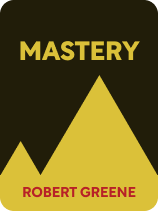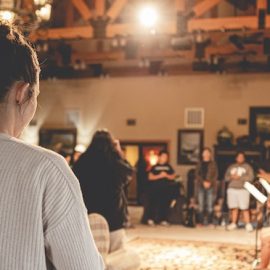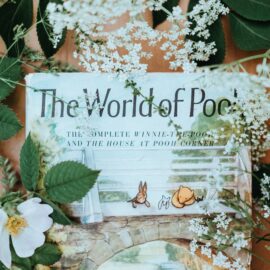
Are you willing to look foolish for the sake of learning? If you have a teacher, how well do you trust them?
Writer and educator George Leonard says that, if you want to take the path of mastery, you must surrender to it. He explains that mastery of any skill or art is a process, and you have to submit to that process if you want to learn all that you can.
Read more to understand the all-in commitment to learning that Leonard describes in his book Mastery: The Keys to Success and Long-Term Fulfillment.
Commitment to Learning
The master’s path is to continually learn. To do this requires surrender, according to Leonard. Surrender means letting go of your ego or any pretense to skill that you carry. If you clutch onto some idea that you’re already good enough or you always know what’s best, you’ll be too preoccupied with protecting your sense of self to truly learn anything. Leonard explains two ways in which you must make a full commitment to learning.
First, you must surrender to your teacher: Having already made sure you have a good teacher, trust what they have you do—no matter how ridiculous it seems. Right now, they’re the master, and you have to trust that they know what’s best for the beginner (you).
(Shortform note: You should be able to trust your teacher if you’ve followed Leonard’s tips and vetted a good one, but note still that full surrender to a master figure can be risky. Recent studies report that close to 50% of professional athletes suffer from mental health issues such as depression or anxiety that may be related to mental, physical, emotional, and/or sexual abuse from their coaches. Given this, watch for clear red flags—such as abusive language or unwanted physical advances—and cut off the relationship if things feel wrong or unsafe.)
Second, Leonard says, you must surrender to your ignorance: To learn requires that you be willing to look foolish. At first, you’ll be bad at whatever new skill you try to learn. However, floundering and flailing is precisely the mistake-driven learning process that takes us forward. If you’re unwilling to look foolish, though, you won’t make progress because you’ll be afraid to make mistakes or look like you’re bad at something.
(Shortform note: Leonard isn’t the only expert who argues that foolishness is on the path to mastery—Matthew Syed makes a similar case in Black Box Thinking, where he argues that failure is the essence of learning. Only through a willingness to be wrong and to fail can we learn, he argues, because our mistakes reveal to us what we don’t yet understand. So, if you aren’t willing to be foolish, you’ll never learn, because you’ll never allow yourself to be wrong—and thereby to learn.)
According to Leonard, the true master is an eternal beginner, always willing to play the fool. This is because with any sufficiently complex skill, there’s always more to learn—for each step you take, there are always two more that arise on the road ahead. Thus the master walks her path not to reach results, but to sink ever deeper into the mysteries and challenges of her chosen skill.
(Shortform note: Here, Leonard alludes to the concept of beginner’s mind, or shoshin, which originates from Zen Buddhism. It contrasts with the “expert’s mind,” or the mind of someone who thinks they’ve learned it all. To such a person, the possibilities are limited and rigid. But to someone who cultivates a beginner’s mind—for instance, by practicing humility, curiosity, and quiet sitting—the possibilities are endless, and the learning experience is therefore far richer.)

———End of Preview———
Like what you just read? Read the rest of the world's best book summary and analysis of Robert Greene's "Mastery" at Shortform.
Here's what you'll find in our full Mastery summary:
- How to walk the path of the master by being disciplined in your skill or art
- Why mastery isn't an end goal, but rather a continual process of learning
- Why the master's path is the only guaranteed way to live a fulfilling life






